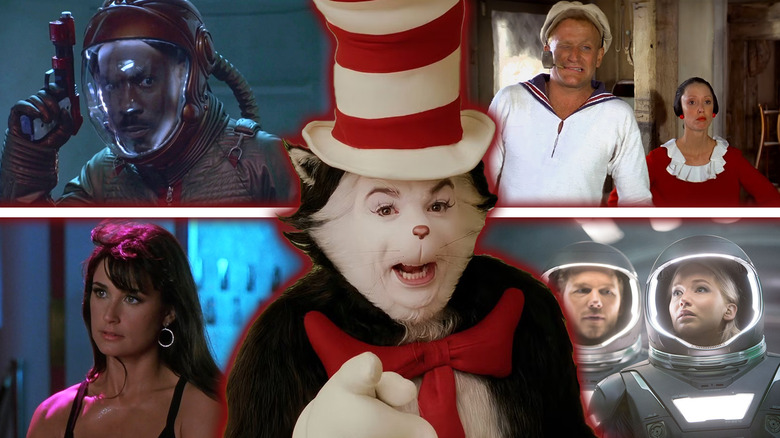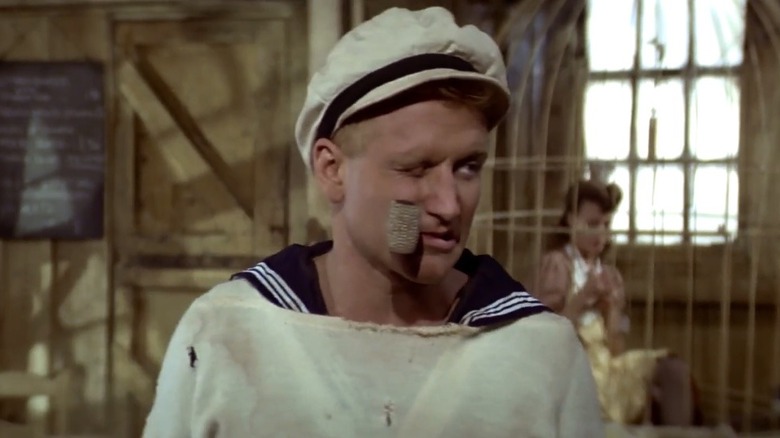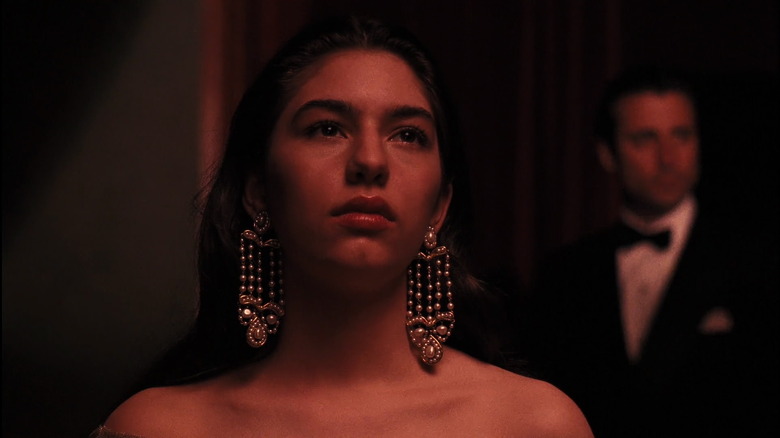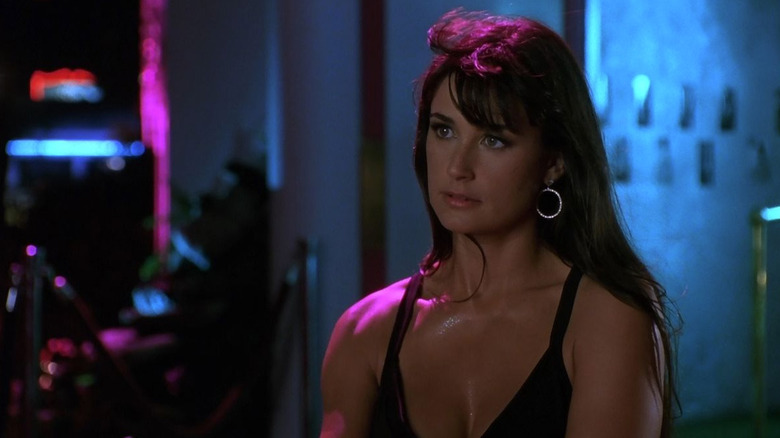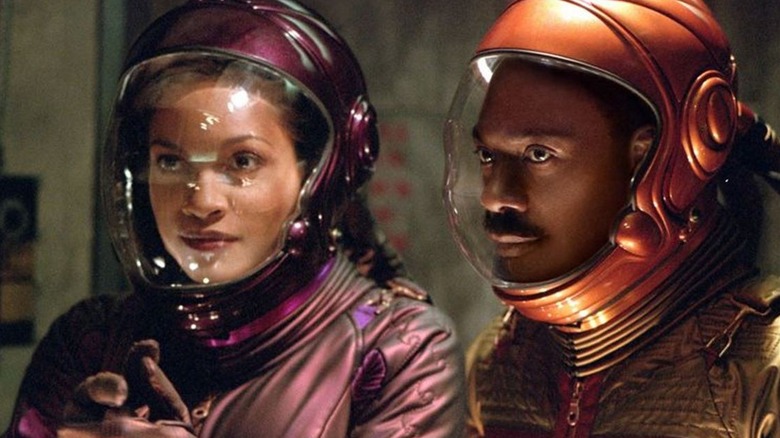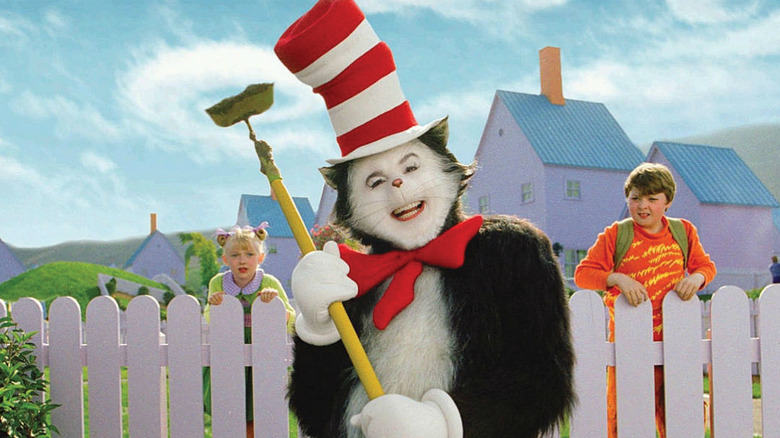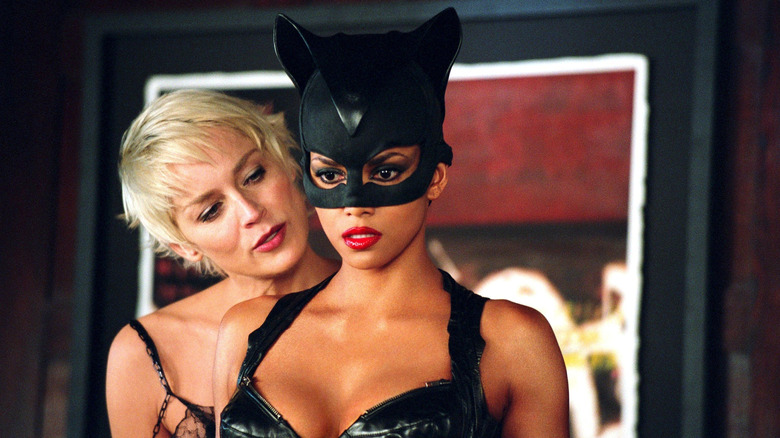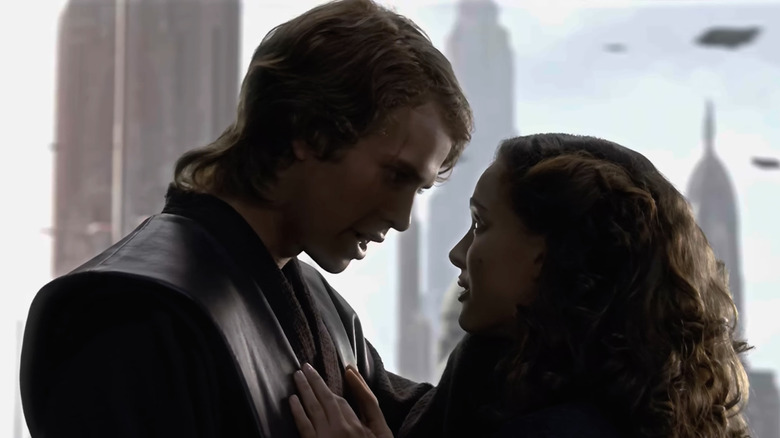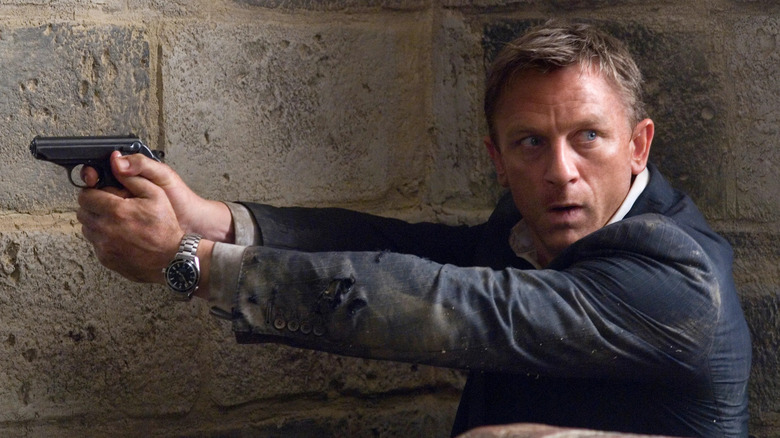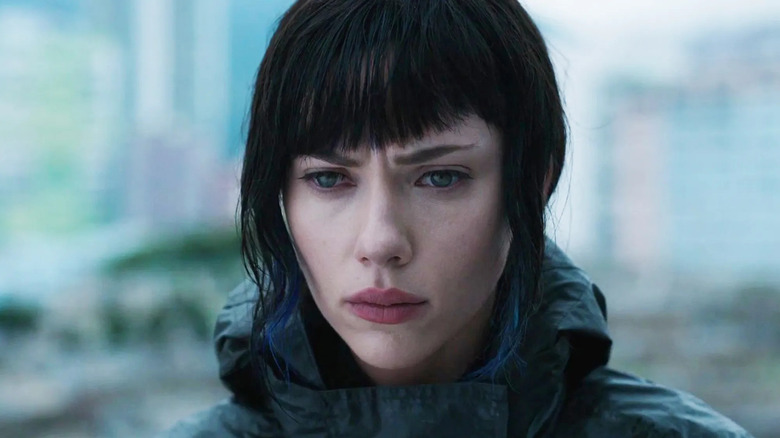12 Movies That Almost Ended An A-List Actor's Career
No actor goes into a project intending for it to ruin their reputation, and yet a lot of decisions from actors about what to star in are questionable in hindsight. Oftentimes, star power can cloud an artist's desire to do more "serious" work, leading them on a path of starring in films that are purely out to make money at the box office or profit off name recognition. For these actors, starring in some films did more harm to their careers than good.
Nevertheless, it'd be unfair to say that any of these actors hasn't earned their flowers before or since these mediocre films. For some, they might've abruptly derailed a successful career, but recent years have shown that, at least for some actors, one bad role won't define someone's entire career. Just like there are terrible movies by great directors, there are these bad movies starring great actors who, thankfully, got another chance to show the entertainment industry what they're made of.
Here are 12 movies that almost ended A-list actors' careers.
Popeye
It wouldn't be hyperbole to say Robin Williams is one of the greatest comedians of all time, although his thriving film career didn't start off great. Williams broke out in stand-up comedy, transitioning to television with "Mork & Mindy" playing an alien who originated in a guest starring role on the popular sitcom "Happy Days." Amidst his rise to fame between the late 1970s and early 80s, Williams made his feature film debut in "Popeye."
Despite being directed by Robert Altman and having a supporting cast including Shelley Duvall and Bill Irwin, "Popeye" was a nightmare to shoot and released in 1980 to abysmal reviews. Though some critics, like Roger Ebert, lauded its adaptation of the character played by Williams, others found it directionless and unfunny. It's only in recent years that the film has seen retroactive acclaim, finding it a more artful comic book adaptation than the superhero movies of today.
None of that really mattered at the time, given the film was a box office bomb, and Altman was unemployable in Hollywood for years after its release. However, Williams' career didn't suffer as badly, given the best Robin Williams movies include smash hits like "Aladdin" and "Good Will Hunting," with his performance in the latter even winning him an Oscar for Best Supporting Actor.
The Godfather: Part III
Oftentimes, cinephiles will debate which film is better: "The Godfather" or its sequel/prequel, "The Godfather: Part II." However, it's safe to say that no one is arguing that the divisive third installment, "The Godfather: Part III," is the best in the trilogy. Released in 1990, over 15 years after the previous film, it follows an older Michael Corleone (Al Pacino) still wracked with guilt over his criminal past and the breaking apart of his family, including his daughter Mary, played by Francis Ford Coppola's real-life daughter, Sofia Coppola.
Though the real reason Pacino agreed to make "The Godfather: Part III" was to restore dignity to Michael's character, Sofia Coppola's performance overshadowed much of its hype, with critics believing her to be wildly inexperienced compared to the rest of the cast. That being said, Coppola had appeared in many films prior to "Godfather: Part III," including Tim Burton's short "Frankenweenie" and her father's 1986 film "Peggy Sue Got Married."
Fortunately, for Sofia Coppola, while "Godfather" may have ruined her aspirations of doing more acting, she's garnered more acclaim as a filmmaker. She's written and directed films like "The Virgin Suicides," "Lost in Translation," and "Priscilla," frequently collaborating with the likes of Kirsten Dunst, Bill Murray, and Elle Fanning. Imagine "The Godfather" being a low point in your career!
Striptease
The past year has been something of a comeback for Demi Moore, earning an Oscar nom and a Golden Globe win for her performance in "The Substance," a body horror film centered on an actress trying to remain young and beloved. It was a relatable experience for Moore, whose stardom in the 80s and 90s fizzled out after a series of box office failures, including Ridley Scott's "G.I. Jane," but the more significant turning point in her career was 1995's "Striptease," written and directed by Andrew Bergman, the writer whose credits include "Blazing Saddles" and "Fletch."
In "Striptease," Moore plays an FBI secretary who, after losing her job, transitions to being a stripper and unwillingly becomes embroiled in the world of corrupt politicians after a Florida congressman falls in love with her. Unlike even "G.I. Jane," there wasn't much love for Demi Moore's performance in the movie, but that's not the only reason it nearly soured her future.
In what was unprecedented for 1995, Moore was paid $12.5 million for the role, but with that big of a price tag came criticism towards her willingness to do a movie deemed by many to be sexist. She alleges that she felt body-shamed for agreeing to take that paycheck, and along with the other box office failures, this contributed to a public turning of opinion against her for years to come. Thankfully, after "The Substance," no one can say Moore didn't deserve much better from the industry.
The Adventures of Pluto Nash
It's hard to find an actor who was hotter than Eddie Murphy was for the bulk of his early career. After joining "Saturday Night Live" in 1980, Murphy quickly became an A-lister, juggling stand-up comedy and movie stardom in "Beverly Hills Cop," "Coming to America," "The Nutty Professor," and "Shrek." The best Eddie Murphy movies aside, there's one film in particular that even Buckwheat himself regrets doing: "The Adventures of Pluto Nash."
Released in 2002, this sci-fi comedy stars Murphy as an intergalactic nightclub owner whose business is threatened by a criminal kingpin named Rex Crater (also played by Murphy), with a supporting cast including Rosario Dawson, Randy Quaid, and John Cleese. The film was panned by critics, but even director Ron Underwood sensed as much while they were filming, alleging that Murphy's lack of commitment to elevating the material like he was able to do with "Beverly Hills Cop" ultimately hurt the film.
While "Pluto Nash" might've began a streak of box office bombs starring Murphy, it was far from any nail in a coffin for his future as a movie star. In the years immediately after "Pluto Nash" released, Murphy got an Oscar nomination for "Dreamgirls," had a box office success with "Norbit," and most of all, was the voice of Donkey in the "Shrek" movies. Speaking of Shrek, that reminds us of another "SNL" alum who had a film nearly end his career...
The Cat in the Hat
No one can say Mike Myers is not dedicated to his roles. Following his tenure on "SNL," Myers created successful film franchises like "Wayne's World," "Austin Powers," and "Shrek," but his perfectionism landed him in hot water with Universal Pictures after he abruptly quit a film based on another "SNL" character of his, Dieter, being dissatisfied with the state of his own script and ultimately breaking the contract he had with Universal.
As part of Myers' settlement with Universal, he agreed to star in their 2003 adaptation of Dr. Seuss' "The Cat in the Hat" in the titular role, lacing the family comedy with his own innuendo-filled sense of humor. Although retrospective reviews have called it a bold and absurdly underrated comedy, the film bombed at the box office and led to a ban on live-action Dr. Seuss movies, given that Seuss' widow Audrey Geisel hated it so much.
Fortunately, Myers had a lot to fall back on throughout the 2000s with the continuation of the "Shrek" franchise, but his career took another hit with "The Love Guru." Now that he's spent some time away from the spotlight to focus on raising a family, Myers might be ready for his comeback, with "Shrek 5" slated for release in 2027 and "Austin Powers 4" still rumored to be in development. He even did a comedy series for Netflix, "The Pentaverate," which was a return to form for those who love the Mike Myers oeuvre.
Gigli
"Gigli" is often regarded as one of the worst films of all time, despite having director Martin Brest ("Beverly Hills Cop," "Scent of a Woman") behind the camera and the early 2000s' hottest celebrity couple, Ben Affleck and Jennifer Lopez, in front of it. However, the film's production was plagued with conflicts between Brest and studio executives, involving numerous reshoots to entirely change the film's ending, a shut-down stalling production for eight months, and edits that completely butchered storylines and character arcs.
The film stars Affleck as the titular mobster, who is hired to kidnap Brian (Justin Bartha), the mentally-challenged brother of a federal prosecutor threatening to send Gigli's mob boss Starkman (Al Pacino) to prison. Meanwhile, Gigli pursues a romance with Ricki (Lopez), who is hired to help Gigli get the job done as promised, his superiors not trusting him to pull it off.
Though "Gigli" sullied perceptions of Affleck as an actor, his most infamous bomb led to his directing career, as Affleck utilized his time away from acting to direct the acclaimed "Gone Baby Gone" and went on to win an Oscar for his 2012 film "Argo." For Lopez, though her post-"Gigli" romance with Affleck didn't last, she remained a Billboard-charting pop star and even garnered Oscar buzz for her performance in 2019's "Hustlers." The former "Gigli" stars even rekindled their romance in 2021, marrying in 2022 before once again splitting in 2024.
Catwoman
"Catwoman" was no rare circumstance in Hollywood, where an actor wins a major award and immediately transitions to a blockbuster superhero movie. It's a trajectory that's worked for many actors, like Brie Larson, Eddie Redmayne, and Jack Nicholson. However, Halle Berry may have bitten off more than she could chew by starring not only in Marvel's "X-Men" franchise after winning an Oscar for "Monster's Ball" but also going over to DC to do "Catwoman."
Unfortunately, "Catwoman" was a colossal failure both critically and commercially, despite Berry being an inspired choice for the role of Catwoman. This is not the Selina Kyle comic book fans are cognizant of but instead an original character named Patience Phillips, a cosmetics employee who, after uncovering secrets from her company, is nearly killed and revived by a cat called Midnight, endowing her with the powers of a feline and turned into a soldier of the Egyptian cat god Bast. Sure.
Although it was far from a smart career move for Berry, the actress took the film's criticisms in stride, even appearing in-person to accept her Razzie for Worst Actress while also holding her Oscar from "Monster's Ball." Berry has also gone on to garner acclaim for performances in the TV show "Extant" and 2013's "The Call." She even has appreciation for "Catwoman" in retrospect, but the one way she would return for a "Catwoman" sequel is if she could also direct it herself.
The Star Wars prequel trilogy
No one needs to be reminded how reviled the "Star Wars" prequels were, despite retroactive praise for them from fans who grew up with the trilogy. George Lucas' decision to make the prequels driven by technology resulted in not only questionable CGI effects but performances that were done entirely on green screens to tennis balls representing other actors, making a lot of the acting feel disjointed and wooden. Few actors were victims of this more in the prequels than Hayden Christensen and Natalie Portman.
While Portman grew to international fame from playing Queen Padme Amidala in "The Phantom Menace," "Attack of the Clones," and "Revenge of the Sith," she had already stunned audiences as a child actor in "Léon: The Professional," but her bad acting as Padme could've derailed a strong future as an actress. Thankfully, Portman won back the critics with her Oscar-winning turn in "Black Swan," as well as beloved indie roles in "Garden State," "Annihilation," and most recently, "May December."
Christensen, on the other hand, experienced a significant career downturn following "Revenge of the Sith," aside from sparse appearances in films like "Factory Girl" and "Little Italy." However, starting in 2022, he was invited back to "Star Wars" to reprise his role as Anakin / Darth Vader in Disney+'s "Obi-Wan Kenobi" and "Ahsoka." Thankfully, he feels the prequels are just now getting their due from fans, which is certainly more than you could've anticipated after the films first released.
Quantum of Solace
It's hard to imagine there was ever a time that Daniel Craig wasn't considered the best James Bond, but his casting ahead of 2006's "Casino Royale" was divisive among fans of the spy franchise. Many fans especially couldn't see a blonde-haired, blue-eyed man filling in the shoes of previous actors like Pierce Brosnan and Sean Connery. Fortunately, "Casino Royale" proved everyone wrong, but Craig's future was nearly thrown into jeopardy after the biggest disaster in James Bond history, "Quantum of Solace."
The second installment of Craig's Bond series, "Quantum of Solace" hit issues during production as it was filmed during the 2007-2008 Writers' Guild of America strike, meaning there wasn't a finished script. Craig and director Marc Forster essentially were rewriting the movie on-set as uncredited writers, an experience he recalled as a nightmare and soured his feelings towards playing the role for many films to come. Fortunately, Craig did reprise the role for several much more well-regarded sequels.
However, it seems that being the definitive James Bond in spite of "Quantum of Solace" won't be the only memorable role of Daniel Craig's career. He's struck gold with Rian Johnson's "Knives Out" franchise in the role of bumbling-but-brilliant detective Benoit Blanc and garnered acclaim in 2024 for his performance in Luca Guadagnino's romantic drama "Queer."
Les Misérables
Anne Hathaway has gone effortlessly from comedy ("The Princess Diaries," "The Devil Wears Prada," "Love & Other Drugs") to drama ("Rachel Getting Married," "Brokeback Mountain," "Becoming Jane"), but 2012's adaptation of "Les Misèrables" was a turning point for her career, for better or worse. Hathaway received an Oscar for her brief-but-powerful role as Fantine, a struggling factory worker who entrusts the care of her daughter Cosette (Isabelle Allen & Amanda Seyfried) to her employer, Jean Valjean (Hugh Jackman), upon her untimely death.
Though it should've been a triumphant moment for Hathaway, sentiment turned against her on the Internet following her infamous Oscars speech (people felt it gave off "theater kid" energy), and she claims she lost out on acting roles because of how disliked she was by the general public. Thankfully, one director hired Hathaway when everyone seemed to hate her: Christopher Nolan, who cast her in "Interstellar" and reminded everyone why she was so successful in the first place: she's a damn good actor.
While Fantine was one situation in which an actor's acclaimed performance saw them receiving hate, Hathaway has proven herself stronger than the tides of public opinion. Some of her best work post-"Les Mis" has included films like "Colossal," "Serenity," and "Eileen," and she'll likely have lots more praise when Nolan's "The Odyssey" and A24's "Mother Mary" release.
Passengers
Jennifer Lawrence was in a similar place as Anne Hathaway during the latter half of the 2010s. The first half of the decade saw her go from the unknown star of "Winter's Bone" to the lead of blockbusters like "The Hunger Games" movies and an Oscar-winner for "Silver Linings Playbook." That trajectory would be overwhelming for any actress, but as Lawrence herself has alleged, one critically-panned film in particular led to a point where Lawrence felt overexposed and not putting out the same quality films she had at the start of the decade.
That film was 2016's "Passengers," a sci-fi film starring Chris Pratt as an engineer on a spaceship transporting hibernating citizens to a new planet who awakens a journalist, Aurora (Lawrence), to be his companion against her will. Among the film's many criticisms included its narrative, which frames Pratt's Jim as the protagonist rather than Lawrence's Aurora, which is something Lawrence in hindsight agrees with. She even claims that Adele warned her not to make "Passengers," feeling that space movies were overdone at the time.
After taking some time off from acting at the start of the 2020s, Lawrence is now in the midst of a career resurgence, between her hysterical comedy "No Hard Feelings," to receiving Oscar buzz for her latest drama, "Die, My Love," with Robert Pattinson. Maybe, like Emma Stone, she'll have an unexpected second Oscar on the way that'll make audiences forget about "Passengers," if they haven't already.
Ghost in the Shell
It might be debatable to ever consider an era of Scarlett Johansson's career as nearing failure. She's only the highest-grossing lead actor in film history, starring in franchises like the Marvel Cinematic Universe and "Jurassic World," and she's garnered critical acclaim and awards nominations for films like "Marriage Story," "Jojo Rabbit," and "Lost in Translation." However, one film seemingly marred Johansson's career in a controversy that still follows her to this day.
"Ghost in the Shell" was the 2017 live-action adaptation of the iconic manga franchise, with Johansson cast in the lead role as Mira, a cyborg working for the Japanese police. What's notable about this casting is that Johansson is not Japanese, which led to accusations of whitewashing, despite most Japanese fans of the series assuming an American actress would be cast in the role that is not even technically a human being. Either way, that discourse, plus critics feeling the adaptation was as cold and lifeless as a machine, was not a great look for Johansson.
Additionally, Johansson got more criticism after subsequently being cast in "Rub & Tug," a movie where she would've been playing a trans man, which she thankfully backed out of. Obviously, Johansson has had no trouble getting cast in movies since "Ghost in the Shell," but it has been a recurring meme online and a frequent joke on "SNL's" Weekend Update, hosted by her husband Colin Jost.
